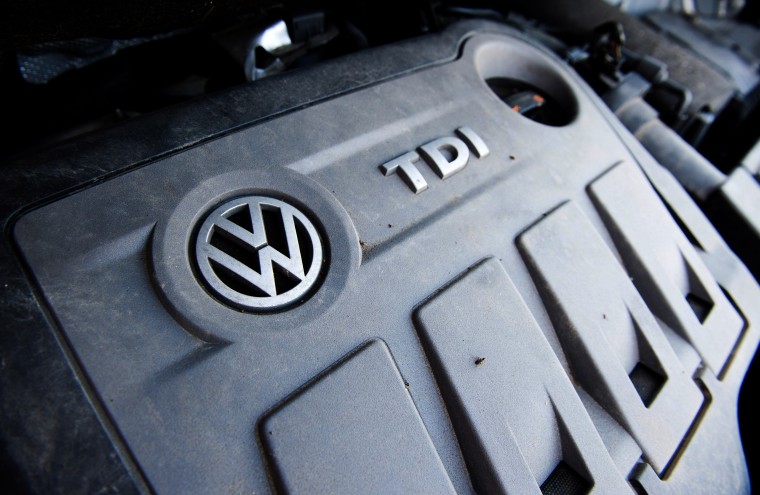German automaker Volkswagen plans to ramp up its offerings of electric vehicles as it fights to bounce back from a scandal over diesel cars rigged to cheat on emissions tests.
The electric campaign is part of a wide-ranging review of the company's strategy that also includes increasing profitability, investing in new ways of getting around that don't necessarily involve owning a car, and making the company's management more open and trustworthy.
Read More: CEO of Volkswagen U.S. Steps Down Amid Emissions Scandal
CEO Matthias Mueller said Thursday the company plans to introduce more than 30 electric-powered vehicles by 2025, and to sell 2 to 3 million of them a year. To support that ambitious plan, the company wants to increase its in-house expertise in battery technology. Improving battery range is expected to be a key factor in getting more people to buy electric cars.
Mueller made the announcement as he unveiled the results of a top-to-bottom review triggered by the scandal that erupted in September 2015 and dubbed "Together — Strategy 2025."
The new plan includes a focus on digital mobility, which could include things like ride-sharing or car-sharing based on smartphone apps, for instance.
The company also set as a goal increasing the profitability and controlling costs. That was particularly true of the core Volkswagen brand, which is barely making money; most of the company's profits in the first quarter came from its luxury brands Audi and Porsche, which tend to have much higher profit margins. Mueller said the company intended to increase operating profit margins for the entire group from the current 6 percent to 7-8 percent by 2025.
Read More: VW's Promised Fix for Diesels Doesn't Apply to U.S. Vehicles: Source
"Our most important currency is trust," Mueller said at a news conference at the company's Autostadt, or Auto City, visitor center next door to its headquarters in Wolfsburg, Germany. He acknowledged the difficulty of winning back public confidence after the scandal.
Mueller said the company would need more electric vehicles to meet increasingly tight government limits on emissions of carbon dioxide, the greenhouse gas blamed by scientists for global warming, and other pollutants. He said, however, that the company would keep a major focus on developing and selling internal combustion engines.
